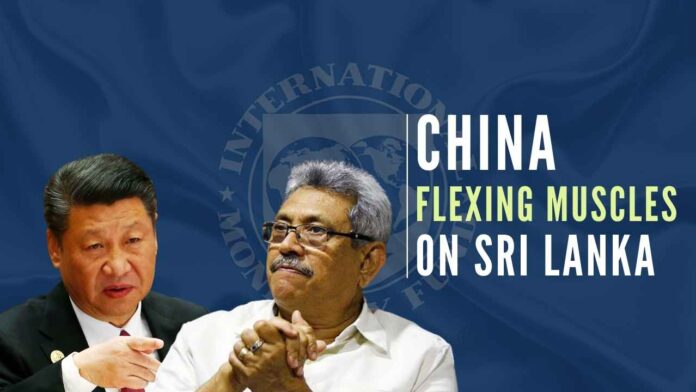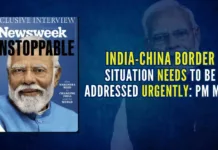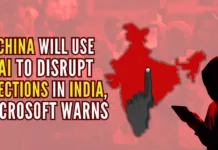
Expresses displeasure for approaching IMF
China is flexing muscles on Sri Lanka, facing a serious financial crisis. Expressing displeasure on Lanka approaching International Monetary Fund (IMF), the Chinese Ambassador in Colombo Qi Zhenhong said on Monday that “China has done its best” to help Sri Lanka not to default on its foreign debt and warned that the debt restructuring will definitely have an “impact” on future bilateral loans.
“China has done its best to help Sri Lanka not to default but sadly they went to the IMF and decided to default,” Qi told reporters in Colombo. “The debt restructuring definitely will have an impact on future bilateral loans,” he said, adding that China was still considering the Sri Lankan request for a USD 1.5 billion buyer’s credit and another USD 1-billion loan. Ahead of going to the IMF, Sri Lanka on April 12 announced its first-ever debt default in the country’s independent history.
Gotabaya Rajapaksa led Government for years declined to approach the International Monetary Fund (IMF) for support, but just last week the president admitted it was a mistake not to go to the Washington-based international lender. When the talks commenced last week in Washington with the IMF, the international lender asked Sri Lanka to restructure its debt as it was not sustainable.
“We are closely monitoring the IMF discussions,” the Chinese Ambassador said. He said Sri Lanka’s former colonial masters have more obligations to help the country. “However, China will continue to disburse old loans as agreed,” Qi said. His comments came days after the IMF assured support to Sri Lanka in its efforts to mitigate the current economic crisis and termed the initial discussions with the delegation led by the country’s Finance Minister Ali Sabry as “fruitful”.
Sabry and his delegation, which includes Central Bank Governor Nandalal Weerasinghe, are currently in Washington, where they held technical discussions for an IMF-supported program. “The IMF team will support Sri Lanka’s efforts to overcome the current economic crisis by working closely with the authorities on their economic program, and by engaging with all other stakeholders in support of a timely resolution of the crisis,” the IMF said in a statement on Saturday.
China has been accused of setting Sri Lanka in a debt trap through heavy borrowings for infrastructure projects such as airports and seaports. Beijing has countered the accusations, saying that Chinese loans only represented 10 percent of the country’s external debt. Sri Lanka needs at least USD 4 billion to tide over its mounting economic woes, and the country has been holding talks with the World Bank and countries like China and Japan for financial assistance.
On April 12, Sri Lanka suspended its debt servicing for the first time in its history. Last week, the Sri Lankan Government said it would temporarily default on USD 35.5 billion in foreign debt as the pandemic and the war in Ukraine made it impossible to make payments to overseas creditors. On Saturday, India agreed to extend an additional USD 500 million credit line to help Sri Lanka import fuel. India has already agreed to defer USD 1.5 billion in import payments that Sri Lanka needs to make to the Asian Clearing Union. India also extended the tenure of a USD 400 million swap given in January this year, the Indian High Commission said on Friday.
Debt-ridden Sri Lanka is grappling with an unprecedented economic turmoil since its independence from Britain in 1948. The crisis is caused in part by a lack of foreign currency, which has meant that the country cannot afford to pay for imports of staple foods and fuel, leading to acute shortages and very high prices.
[with PTI inputs]
PGurus is now on Telegram. Click here to join our channel and stay updated with all the latest news and views
For all the latest updates, download PGurus App.
- Prime Minister Narendra Modi: A Gujju businessman who does not invest his precious time for a losing battle - April 13, 2024
- NIA arrests two accused Shazib and Taahaa in Bengaluru’s Rameshwaram Cafe blast case from Kolkata - April 12, 2024
- National Herald scam: Adjudicating Authority upholds Rs.752 crore assets attached by ED - April 11, 2024










